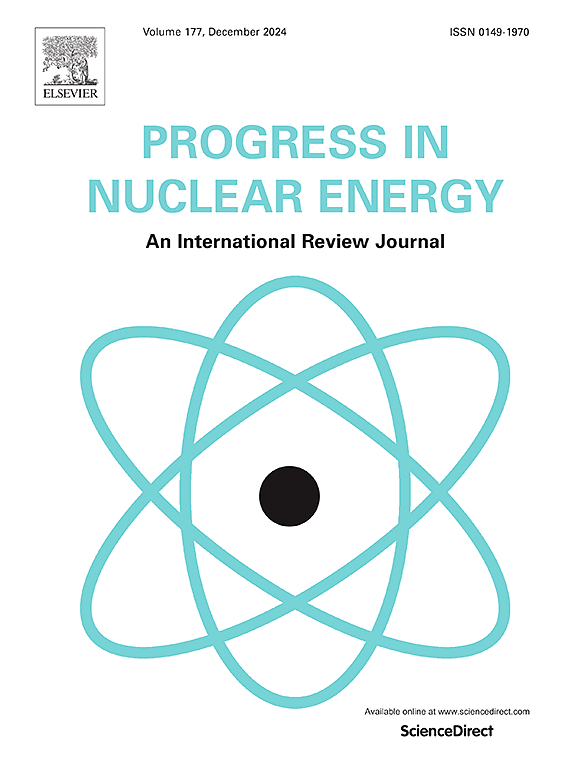Variation in multi-unit NPP seismic risk due to seismic failure correlation between structures, systems, and components (SSCs)
IF 3.3
3区 工程技术
Q1 NUCLEAR SCIENCE & TECHNOLOGY
引用次数: 0
Abstract
Seismic events affect a wide area; therefore, if such an event occurs at nuclear power plants on the same site, the impact will be similar. This correlation in seismic failure extends across structures, systems, and components (SSCs). This study performed a seismic probabilistic risk assessment for multi-units, incorporating the seismic failure correlations between SSCs, and investigated the variation in risk due to these correlations. The seismic failure correlation coefficients between SSCs were derived from probabilistic seismic response analyses. Furthermore, for comparative analysis, the seismic risk was assessed using the seismic failure correlation between SSCs for independence, partial dependence, and complete dependence. A partially dependent case for the same component was also investigated. The findings indicate significant variations in the seismic fragility and seismic risk of nuclear power plants when considering failure correlations between SSCs, highlighting the importance of including such interdependencies between SSCs in safety evaluations for multi-unit scenarios. This study provides insights for enhancing the seismic probability risk assessment of nuclear power plants, especially in areas with multi-unit issues.
结构、系统和部件间地震破坏相关性导致的多单元核电站地震风险变化
地震事件影响的范围很广;因此,如果这种事件发生在同一地点的核电站,其影响将是相似的。这种地震破坏的相关性延伸到结构、系统和部件(ssc)。本研究对多单元进行了地震概率风险评估,纳入了ssc之间的地震破坏相关性,并研究了这些相关性导致的风险变化。基于概率地震反应分析,推导了ssc间的地震破坏相关系数。此外,为了进行对比分析,使用ssc之间的地震破坏相关性来评估地震风险,分别为独立、部分依赖和完全依赖。对同一组件的部分依赖情况也进行了研究。研究结果表明,在考虑ssc之间的故障相关性时,核电站的地震脆弱性和地震风险存在显著差异,强调了在多单元情景的安全评估中包括ssc之间的这种相互依赖性的重要性。本研究为加强核电厂地震概率风险评估,特别是多机组问题地区的核电厂地震概率风险评估提供了参考。
本文章由计算机程序翻译,如有差异,请以英文原文为准。
求助全文
约1分钟内获得全文
求助全文
来源期刊

Progress in Nuclear Energy
工程技术-核科学技术
CiteScore
5.30
自引率
14.80%
发文量
331
审稿时长
3.5 months
期刊介绍:
Progress in Nuclear Energy is an international review journal covering all aspects of nuclear science and engineering. In keeping with the maturity of nuclear power, articles on safety, siting and environmental problems are encouraged, as are those associated with economics and fuel management. However, basic physics and engineering will remain an important aspect of the editorial policy. Articles published are either of a review nature or present new material in more depth. They are aimed at researchers and technically-oriented managers working in the nuclear energy field.
Please note the following:
1) PNE seeks high quality research papers which are medium to long in length. Short research papers should be submitted to the journal Annals in Nuclear Energy.
2) PNE reserves the right to reject papers which are based solely on routine application of computer codes used to produce reactor designs or explain existing reactor phenomena. Such papers, although worthy, are best left as laboratory reports whereas Progress in Nuclear Energy seeks papers of originality, which are archival in nature, in the fields of mathematical and experimental nuclear technology, including fission, fusion (blanket physics, radiation damage), safety, materials aspects, economics, etc.
3) Review papers, which may occasionally be invited, are particularly sought by the journal in these fields.
 求助内容:
求助内容: 应助结果提醒方式:
应助结果提醒方式:


